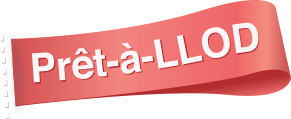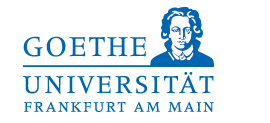Call for Papers
Past years have seen a growing interest in the application of knowledge graphs and web technologies to language resources, and their publication as linked data on the Web. As of today, a large amount of language resources were either converted or created natively as linked data on the basis of data models specifically designed for the representation of linguistic content. Examples are wordnets, dictionaries, and corpora. At the same time, the growth of the Linguistic Linked Open Data (LLOD) cloud is far from over: new use-cases call for new data models and new resources to be created, to be or converted and to be linked. However, even though a critical mass of LLOD is already in place, there is still a pressing need of a robust ecosystem of tools that consume linguistic linked data.
Since its establishment in 2012, the Linked Data in Linguistics (LDL) workshop series has become the major forum for presenting, discussing and disseminating technologies, vocabularies, resources and experiences regarding the application of semantic technologies and the Linked Open Data (LOD) paradigm to language resources in order to facilitate their visibility, accessibility, interoperability, reusability, enrichment, combined evaluation and integration. The LDL workshop series has contributed greatly to the emergence and growth of the LLOD cloud and has contributed to the discussion, dissemination and establishment of community standards that drive this development, most notably the OntoLex-lemon model for lexical resources, as well as standards for other types of language resources.
Topics of Interest
We invite presentations of algorithms, methodologies, experiments, tools, use cases, descriptions of ongoing or planned research projects and position papers regarding the creation, supporting, publication or application of linguistic data collections and their linking with other resources, as well as descriptions of such data, and in particular, its uses in research (linguistics, lexicology, digital humanities) and technology (natural language processing, lexicography, localization). This includes the following aspects of creating and managing linked language resources:
- Infrastructure for building & managing linked language resources
- Vocabularies, standards and best practices
- Tools and interfaces for creating and curating LL(O)D resources
- (Semi-)automatic approaches to creating linked language resources
- LLOD technology and methodology
- Methodologies for linked language resource development
- Leveraging LLOD, machine learning and natural language processing
- Linking resources across languages
- Ontology matching for language resources
- LLOD applications
- Using LOD to facilitate natural language processing
- Using LOD for quantitative and qualitative linguistic research
- LLOD for digital humanities
- Linking language resource (LRs) and external community resources
- Critical Reflection
- Challenges of scalability, multilinguality and interoperability in the Web
- Legal, social and scientific aspects of Linguistic Linked Open Data
- LLOD revisited: Case studies, use cases, and lessons learnt
We invite both long (up to 8 pages and 2 pages of references, formatted according to the LREC 2020 guidelines) and short papers (4 pages and 2 pages of references) representing original research, innovative approaches and resource descriptions. Short papers may also represent project descriptions or position papers that do not have to report implementations but that can discuss to what extent and for which purposes Linguistic Linked Open Data is reused or created. Projects in their early stages that seek advice from the broader LLOD community are welcome, especially if addressing fields still underrepresented in the LLOD cloud. In addition to the main track, we encourage participants to present applications that use LLOD resources in a separate demo track. Both established systems and proofs of concept demonstrations can also be carried out in addition to presenting a paper. The best system will be awarded a monetary prize. This will be selected by a committee based on the reliability, innovation and user-friendliness of the application.
Contributions should be submitted: here
Identify, Describe and Share your LRs !
Describing your LRs in the LRE Map is now a normal practice in the submission procedure of LREC. To continue the efforts initiated at LREC 2020 about “Sharing LRs” (data, tools, web-services, etc.), authors will have the possibility, when submitting a paper, to upload LRs in a special LREC repository. This effort of sharing LRs, linked to the LRE Map for their description, may become a new regular feature for conferences in our field, thus contributing to creating a common repository where everyone can deposit and share data.
As scientific work requires accurate citations of referenced work so as to allow the community to understand the whole context and also replicate the experiments conducted by other researchers, LREC 2020 endorses the need to uniquely Identify LRs through the use of the International Standard Language Resource Number (ISLRN, www.islrn.org), a Persistent Unique Identifier to be assigned to each Language Resource. The assignment of ISLRNs to LRs cited in LREC papers will be offered at submission time.
Important Dates
16 Feb 2020 28 Feb 2020: submission
13 Mar 2020: notification
02 Apr 2020: camera-ready
11 May 2020: workshop, Marseille (France)
Organizing Committee
- John P. McCrae (National University of Ireland Galway, Ireland)
- Jorge Gracia (University of Zaragoza, Spain)
- Julia Bosque Gil (University of Zaragoza, Spain)
- Maxim Ionov (Goethe University Frankfurt, Germany)
- Christian Chiarcos (Goethe University Frankfurt, Germany)
- Thierry Declerck (DFKI GmbH, Germany)
Please get in contact via ldl2020@linguistic-lod.org
Programme Committee
- Paul Buitelaar (Insight, Ireland)
- Steve Cassidy (Macquarie University, Australia)
- Damir Cavar (Indiana University, USA)
- Gerard de Melo (Rutgers University, USA)
- Francesca Frontini (Université Paul-Valéry, Montpellier, France)
- Jeff Good (University at Buffalo, USA)
- Dagmar Gromann (Vienna University, Austria)
- Yoshihiko Hayashi (Osaka University, Waseda University, Tokyo, Japan)
- Fahad Khan (ILC-CNR, Italy)
- Elena Montiel-Ponsoda (Universidad Politécnica de Madrid, Spain)
- Steve Moran (Universität Zürich, Switzerland)
- Roberto Navigli (“La Sapienza” Università di Roma, Italy)
- Sebastian Nordhoff (Language Science Press, Berlin, Germany)
- Petya Osenova (IICT-BAS, Bulgaria)
- Antonio Pareja-Lora (Universidad Complutense Madrid, Spain)
- Mariano Rico (Universidad Politécnica de Madrid, Spain)
- Laurent Romary (INRIA, France)
- Felix Sasaki (Cornelsen Verlag GmbH, Berlin, Germany)
- Andrea Schalley (Karlstad University, Sweden)
- Gilles Sérasset (University Grenoble Alpes, France)
- Armando Stellato (University of Rome, Tor Vergata, Italy)
- Piek Vossen (Vrije Universiteit Amsterdam, The Netherlands)






